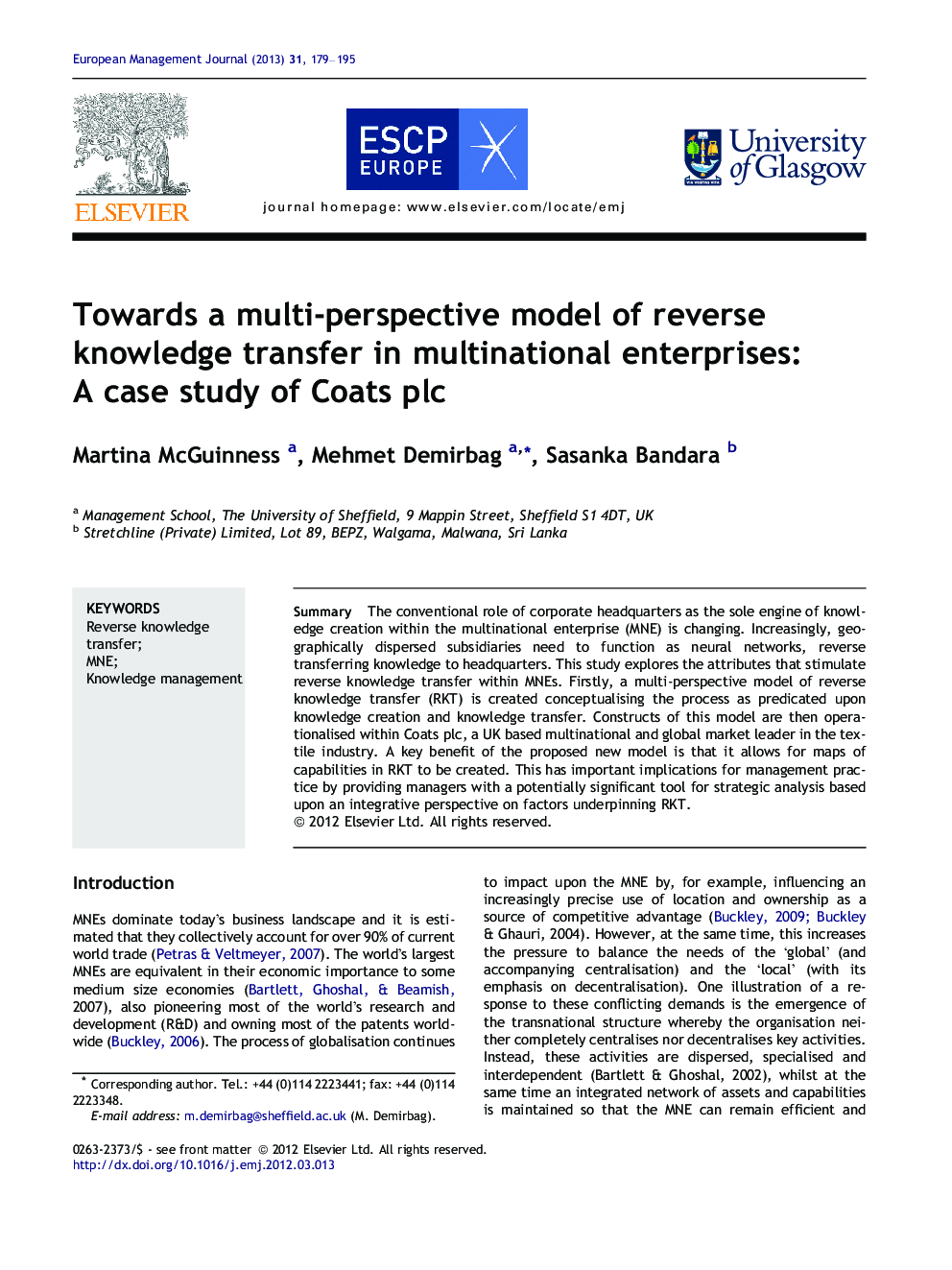| Article ID | Journal | Published Year | Pages | File Type |
|---|---|---|---|---|
| 1014857 | European Management Journal | 2013 | 17 Pages |
SummaryThe conventional role of corporate headquarters as the sole engine of knowledge creation within the multinational enterprise (MNE) is changing. Increasingly, geographically dispersed subsidiaries need to function as neural networks, reverse transferring knowledge to headquarters. This study explores the attributes that stimulate reverse knowledge transfer within MNEs. Firstly, a multi-perspective model of reverse knowledge transfer (RKT) is created conceptualising the process as predicated upon knowledge creation and knowledge transfer. Constructs of this model are then operationalised within Coats plc, a UK based multinational and global market leader in the textile industry. A key benefit of the proposed new model is that it allows for maps of capabilities in RKT to be created. This has important implications for management practice by providing managers with a potentially significant tool for strategic analysis based upon an integrative perspective on factors underpinning RKT.
► This case study spans RKT process across different economies US–UK; Sri Lanka–UK; Turkey–UK. ► Novel perspectives are offered on RKT and also the geographical and economic dimensions of the data. ► We use Gupta and Govindarajan’s (1991, 1994) method of knowledge flow based strategic mandates. ► We find that RKT phenomena can be characterised under the four key knowledge constructs.
